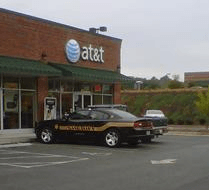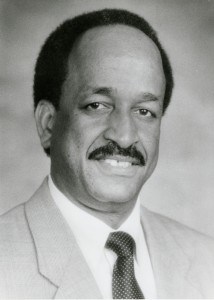 Stop the Cap! received this unsolicited letter from an employee working at Frontier Communications about how the company has been running the business and treating their customers. We’ve been able to independently verify enough of this letter, by talking with other Frontier employees, to highlight it for our readers.
Stop the Cap! received this unsolicited letter from an employee working at Frontier Communications about how the company has been running the business and treating their customers. We’ve been able to independently verify enough of this letter, by talking with other Frontier employees, to highlight it for our readers.
Frontier Communications is a long way from its progenitor (and namesake) — Rochester Telephone Corporation, which operated locally with excellence for 100 years. Rochester Tel changed its name to Frontier Communications as it sought to abandon its image as a basic phone company. It was later sold to Global Crossings, which later sold it to Citizens Communications, which decided to adopt the Frontier name itself.
I work for a major well known utility company and I feel ethically compelled to inform someone that there are practices within my company that are being done without consideration for the consumer. My employment there has extended well over three years now and I have been turning a blind eye to what they call ‘customer service.’ I believe that I have the duty to expose some of these inner-workings to the public. I work for Frontier Communications.
I do not want to be named nor am I going to divulge any names of my fellow employees. I will give details about some of the misinformation given to customers, issues with systems that cause billing problems, and a few other known issues that upper management continues to overlook.
Recently there were a few groups of employees force-fed training on Frontier’s newest [customer support] systems. It was crammed into an eight day course. The majority of the time the training systems were down, certain elements of the systems were overlooked with promises that employees will learn how to manage these while on the floor. Anxiety and panic swept the call center; worried faces riddled with anger and frustration stood out everywhere. All except the higher management. They kept saying, ‘don’t worry, you guys will be OK’ or ‘we have to get this call volume down’. But the statement that never failed was, ‘don’t forget that you need to offer a wide array of services on every call. That’s your job.’ Regardless if a customer is calling in because she/he cannot afford their service as-is, we are required to try and upsell them.
I was employed with Verizon prior to the acquisition to Frontier. It was an exciting day for us because we felt like Verizon’s iron hand was being lifted. But to our dismay the same type of mentality still exists [with Frontier]. The changes Frontier made caused a lot of panic as well. We are trained for sales rather than customer service even though Frontier’s values are “People, Product, and Profit.” A customer may call in with a major issue, often irritated and frustrated. We are expected to entice them to purchase an additional product that may or may not work.
 I will enlighten you on that subject. Our ‘network congestion’ issue with High Speed Internet has caused a tremendous volume of calls to the call centers and tech support. There were periods when calls to these departments exceeded 30 minutes and even at times close to an hour. Numerous [former Verizon] customers have experienced ‘network congestion’. This issue caused a great deal of frustrated customers to call about their Internet (HSI) service dropping. Some of them experience up and down periods over a few months. I even witnessed some customers that were out for weeks at a time.
I will enlighten you on that subject. Our ‘network congestion’ issue with High Speed Internet has caused a tremendous volume of calls to the call centers and tech support. There were periods when calls to these departments exceeded 30 minutes and even at times close to an hour. Numerous [former Verizon] customers have experienced ‘network congestion’. This issue caused a great deal of frustrated customers to call about their Internet (HSI) service dropping. Some of them experience up and down periods over a few months. I even witnessed some customers that were out for weeks at a time.
How do you sell a product that is not reliable? Netflix made the comment that Frontier has one of the worst broadband services in the nation. Some of us here feel guilty when we sell certain products because we know it may or may not work sometimes. The newest, greatest selling technique we have for HSI is selling it whether or not it is available in a customer’s area. Customers call in livid and frustrated because they were told they can get a service and now they are being told their area is not available for that upgrade to HSI quite yet.
Another odd situation we have going on right now is our new phone systems are Voice Over IP. We are the phone company right? Then why are we using that type of system? Among the numerous issues: dropped calls, noise on the line, being unable to fully understand what the customer is saying & vice-versa, and the system totally freezing up while on a call.
 There are some of us who have just sat around because we were unable to access anything. One rep became concerned because their training for the phone system consisted of a learning document they were given minutes before they were expected to use it. A coach was made aware of her concerns and his comment was more or less ‘well then you need to ask if you need help’. That reply was heard by a few different reps and all were taken aback. Why can’t we get the training we need to navigate through all of the madness?
There are some of us who have just sat around because we were unable to access anything. One rep became concerned because their training for the phone system consisted of a learning document they were given minutes before they were expected to use it. A coach was made aware of her concerns and his comment was more or less ‘well then you need to ask if you need help’. That reply was heard by a few different reps and all were taken aback. Why can’t we get the training we need to navigate through all of the madness?
Call volume. How are we going to be able to handle issues like repair and collections, write orders properly, and steer through a calling system that just doesn’t seem to be working correctly? Apparently it doesn’t matter as long as we upsell our customers.
One of the last issues I’m going to share with you is a critical issue that a new rep has brought to our attention and higher management as well. When a service appointment — repair, new install, etc. — is not fulfilled, the customer is NOT called back to let them know their scheduled appointment will not be kept, much less make an effort to reschedule it. Management and other departments know about this and still no efforts have been made to fix it. I have seen this on my end as well. What do you say to a customer who asks, ’why didn’t anyone call?’ There’s no real honest way to answer that properly.
I don’t know what is going to happen with the pending lawsuit that Frontier has from the $1.50 surcharge for HSI service but I do know that a lot of us here don’t agree with the charge and how it was handled. We were given a document on what to say when the customer calls in and disputes the charge. It was a paragraph, more or less, stating we are imposing this surcharge and there’s nothing we can do to waive it.
I now realize I have a made a poor choice in my career. I have great empathy for the customer and I’m fed up with how they are treated as well as the employees.
Thank you for listening,
“Joan Jones” (Anonymous)


 Subscribe
Subscribe



